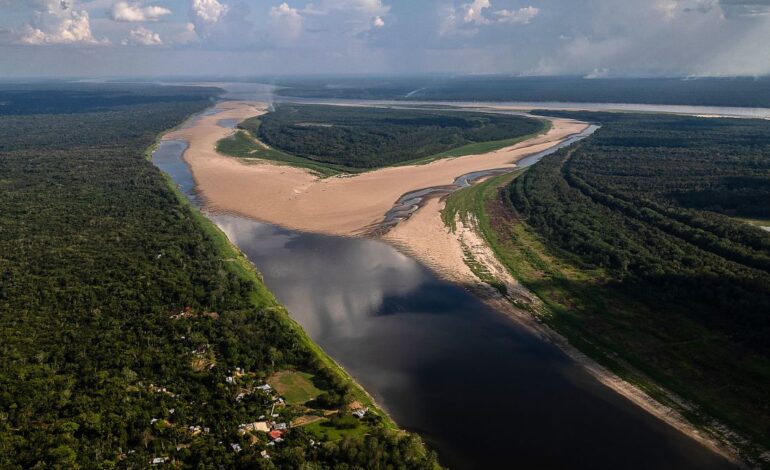Urgent Report: Global Water Cycle Becomes Erratic, Floods Surge

URGENT UPDATE: The global water cycle is now deemed “increasingly erratic and extreme,” according to a damning report released today by the World Meteorological Organization (WMO). This alarming finding highlights a drastic surge in both droughts and floods, posing significant threats to economies and societies worldwide.
The WMO’s State of Global Water Resources report, published on October 26, 2023, reveals that nearly two-thirds of global river basins faced “abnormal conditions” last year, grappling with either severe droughts or catastrophic floods. The report underscores the dramatic shifts caused by climate change, primarily driven by human activities such as fossil fuel combustion.
In 2024, the hottest year on record, numerous regions are suffering from acute water shortages. For instance, rivers in the Amazon have plunged to unprecedented lows, while parts of southern Africa have experienced extreme droughts that forced governments to cull hundreds of animals, including elephants. In the United States, states like Texas, Oklahoma, and Kansas saw crops wither under relentless heat.
Despite these droughts, the report reveals a paradox—flooding incidents surged, with Europe facing its most extensive floods since 2013. Hurricane Helene wreaked havoc in the United States, resulting in at least 230 deaths, while floods in West and Central Africa accounted for approximately 1,500 fatalities.
The study also highlights a disturbing trend in glacial melt. For the third consecutive year, glaciers lost an estimated 450 gigatons of ice—equivalent to a block measuring 4.3 miles on each side, enough to fill 180 million Olympic swimming pools. Areas like Scandinavia, the Arctic archipelago of Svalbard, and northern Asia are witnessing record rates of glacial melt. This phenomenon poses dire implications for global sea levels and the communities that depend on glaciers for drinking water, irrigation, and power.
The WMO’s lead author, Stefan Uhlenbrook, emphasized the financial toll, noting that single flood events last year caused billions in damages. He warned that the shifting availability of water resources could escalate tensions and conflicts, as access to water becomes increasingly precarious.
Celeste Saulo, WMO secretary-general, articulated the urgent need for action: “Water sustains our societies, powers our economies, and anchors our ecosystems. Yet, the world’s water resources are under growing pressure, and extreme water-related hazards are having an increasing impact on lives and livelihoods.”
As the world grapples with these urgent challenges, the latest findings stress the need for immediate policy changes and proactive measures to mitigate the impacts of climate change. The consequences of an unstable water cycle are real and immediate, affecting not just the environment but also the very fabric of human society.
Stay tuned for further updates as this developing story unfolds.






